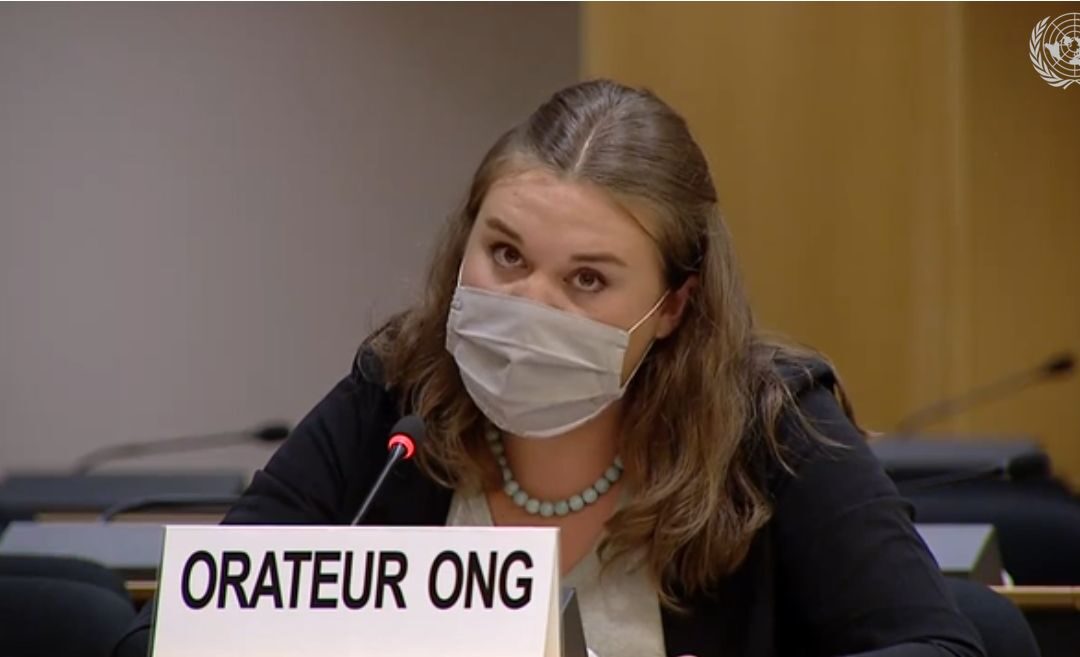
Jun 18, 2020 | Advocacy, Non-legal submissions
Speaking at the UN Human Rights Council in Geneva today, the ICJ urged action on excessive use of force, including unlawful killings, disproportionately targeting people of African descent and other minorities, by police throughout the United States of America, as well as in other countries.
The statement, delivered during an urgent debate on “current racially inspired human rights violations, systemic racism, police brutality and the violence against peaceful protest” that was requested by African countries, read as follows:
“Black lives matter.
The International Commission of Jurists (ICJ) condemns widespread incidents of unlawful and unnecessary use of force, including lethal force, by police throughout the United States of America, disproportionately targeting people of African descent and other minorities.
Many jurisdictions in the United States disregard, in law and in practice, universal standards including under the International Covenant on Civil and Political Rights and the UN Basic Principles on the Use of Force and Firearms by Law Enforcement Officials. These incorporate the requirements of proportionality and necessity and affirm that lethal force may only be used when strictly unavoidable to protect life. The ICJ is also concerned that doctrines of “qualified immunity” in practice result in impunity for extrajudicial killings and other serious human rights violations by police. The UN Human Rights Committee and the Committee against Torture, among others, have already called on the US to address these deficiencies in meeting their international legal obligations.
The United States is not alone in such abusive and racially discriminatory practices, which plague countries on every continent. While the Council is rightly giving long overdue attention to the United States, this must not serve as an excuse for any other State to fail to acknowledge and address similar violations within their own jurisdictions.
The ICJ supports calls for an independent international mechanism to address systematic racism in law enforcement in the United States and elsewhere.”
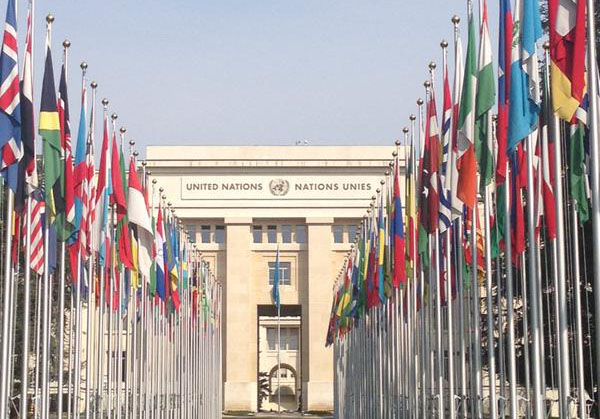
Jul 3, 2019 | Advocacy, Non-legal submissions
The ICJ today joined other NGOs in urging the UN Human Rights Council to take action on the Philippines.
The joint oral statement was delivered by the World Organisation Against Torture (OMCT) on behalf of OMCT, Amnesty International, the International Commission of Jurists (ICJ), Franciscans International, Swiss Catholic Lenten Fund, the International Federation for Human Rights (FIDH), FORUM-Asia. It read as follows:
“In March 2019, the UN High Commissioner for Human Rights noted that several sources “estimate that up to 27,000 people may have been killed in the context of the campaign against illegal drugs since mid-2016.”
Unlawful killings, including of children, carry on, and President Rodrigo Duterte and his administration continue to explicitly encourage these acts. In June 2019, the scale and seriousness of the reported human rights violations prompted 11 UN human rights experts to call on the Council to establish an independent investigation into such violations.
Intimidations by government officials at the highest levels against politicians, human rights defenders, journalists, and several Special Procedures mandate holders have also been rising.
At the 35th, 36th, and 38th sessions of the Council, Iceland, on behalf of a group of States, explicitly called on the government “to take all necessary measures to bring killings associated with the campaign against illegal drugs to an end and cooperate with the international community to investigate all related deaths and hold perpetrators accountable.”
In light of the failure of the government to effectively investigate and bring to justice those responsible, we urge all States to support the adoption of a resolution on the Philippines at this session, mandating the OHCHR to monitor and provide regular updates on the human rights situation to the Council, as the first step toward establishing an independent international investigation into extrajudicial killings and other human rights violations committed in the government’s ‘war on drugs.’.
Such a response is all the more important given the Philippines obligations to uphold the highest standards in human rights as a member of the Council.”
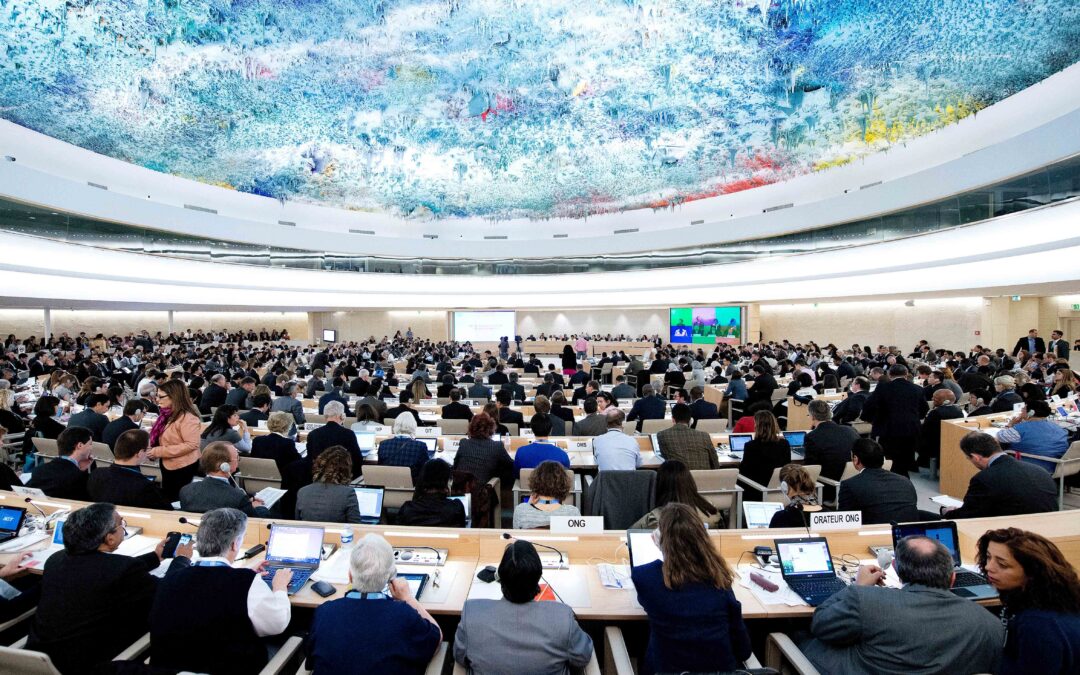
Jul 3, 2019 | Advocacy, Non-legal submissions
The ICJ today joined other NGOs in drawing the attention of the UN Human Rights Council to extra-judicial killings and enforced disappearances in Kashmir.
The statement, delivered by International Federation for Human Rights Leagues (FIDH) on behalf of Asian Forum for Human Rights and Development (FORUM-ASIA), Human Rights Watch, International Commission of Jurists, and World Organisation Against Torture (OMCT), read as follows:
“We look forward to the publication of the High Commissioner for Human Rights’ second-ever report on the grave human rights violations and abuses committed in Kashmir.
In Indian Administered Kashmir, government forces have been responsible for serious violations, including unlawful killings, enforced disappearances, torture, and rape and other sexual violence. These grave violations by security forces in Kashmir are met with chronic impunity, as alleged perpetrators are rarely properly prosecuted for human rights violations, leading to near-total immunity for the crimes committed. Non-state armed groups have also been responsible for serious abuses, including attacks against journalists.
In Pakistani Administered Kashmir, there have been reports of unlawful restrictions on freedom of expression and association, as well as the misuse of anti-terrorism legislation against protesters.
We are gravely concerned by the increasing threats faced by, and reprisals against, human rights defenders and others who have cooperated with UN human rights mechanisms in recent years, particularly in the elaboration of the OHCHR’s reports. We urge the Government of India to ensure that human rights defenders and journalists are allowed to carry out their work without threats or reprisals, and take adequate steps to protect them from non-state groups.
We also remain concerned that the Governments of India and Pakistan continue to deny access to OHCHR and other human rights mechanisms to Kashmir. We call on them to grant unconditional access to these mechanisms, as well as to human rights organizations and the media.
We also call on the Council to act on the call to establish a commission of inquiry.”
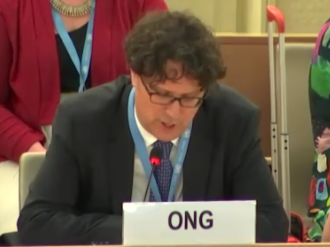
Jun 25, 2019 | Advocacy, Non-legal submissions
Speaking at the UN Human Rights Council in a general debate on the oral update of the High Commissioner for Human Rights, the ICJ addressed issues around “foreign fighters”, criminalisation of solidarity with migrants, and the need for international investigation of violations in the Philippines.
The statement was as follows (check against delivery):
“The International Commission of Jurists (ICJ) thanks the High Commissioner for her oral update.
The ICJ agrees that accountability for crimes under international law committed by foreign fighters is essential; equally, it must be ensured through fair procedures. Where children are concerned, their best interests must be the guiding principle. [To the extent foreign fighters are addressed in relation to counter-terrorism measures, ICJ emphasizes that not only is disregard for human rights in countering terrorism wrong and unlawful in itself, it is also ineffective and indeed itself conducive to terrorism.]
The ICJ is also concerned at the criminalisation of solidarity with migrants in Europe and elsewhere. No one should be penalised for supporting human rights, including those that States fail to uphold. On Thursday, together with the OHCHR and the Geneva Bar Association, ICJ will screen a documentary in Room XIV, the UN Cinema, showing the impact of criminalization of solidarity.
The ICJ supports calls by the High Commissioner and Special Procedures for urgent action by the Human Rights Council on the Philippines. Adoption of a resolution at the current session to establish an independent international investigation is essential.
The huge number of killings in the name of countering drugs is part of a broader pattern of impunity. For instance, at least 39 lawyers have also been killed under the current administration, some of whom were representing victims of human rights violations. A fully independent national commission of inquiry and measures actually to bring perpetrators to justice are also needed to end the pervasive culture of impunity.”
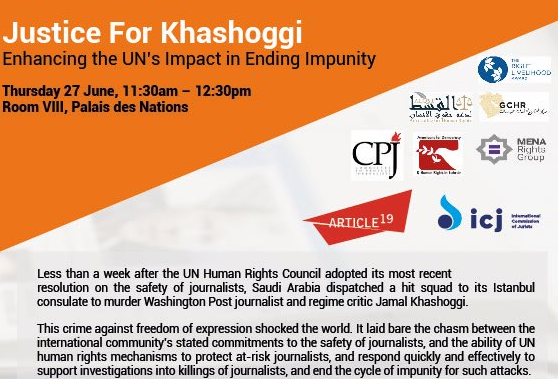
Jun 23, 2019 | Events, News
The ICJ joins other NGOs and UN experts in presenting a side event to the UN Human Rights Council, Thursday 27 June, 11:30am – 12:30pm, in Room VIII, Palais des Nations
Less than a week after the UN Human Rights Council adopted its most recent resolution on the safety of journalists, Saudi Arabia dispatched a hit squad to its Istanbul consulate to murder Washington Post journalist and regime critic Jamal Khashoggi.
This crime against freedom of expression shocked the world. It laid bare the chasm between the international community’s stated commitments to the safety of journalists, and the ability of UN human rights mechanisms to protect at-risk journalists, and respond quickly and effectively to support investigations into killings of journalists, and end the cycle of impunity for such attacks.
This human rights crisis is not limited to autocratic countries or nascent democracies – after several years in decline, the number of killings of journalists worldwide spiked in 2018, whilst impunity for historic cases remains troublingly high, fueling further violence. In Malta, a report by PACE Special Rapporteur Pieter Omtzigt into the killing of Daphne Caruana Galizia more than 18 months ago, highlighted serious concerns over national investigations, pointing to systemic rule of law failings in the country.
As the UN Special Rapporteur on extrajudicial, arbitrary or summary executions, Dr. Agnès Callamard, presents the findings of her independent investigation into the killing of Jamal Khashoggi to the 41st Session of the UN Human Rights Council, join us to discuss what recent attacks on journalists have taught us about gaps in prevention, protection and prosecution, and how to enhance the UN’s response to impunity.
| Panelists |
Dr. Agnès Callamard |
UN Special Rapporteur on extrajudicial, summary or arbitrary executions |
|
David Kaye |
UN Special Rapporteur on freedom of opinion and expression |
|
Hatice Cengiz |
Fiancée of Jamal Khashoggi |
|
Pieter Omtzigt |
Special Rapporteur, Council of Europe |
|
Rob Mahoney |
Deputy Executive Director, Committee to Protect Journalists |
|
Yahya Assiri |
Founder and Director, ALQST |
| Moderator |
Thomas Hughes |
Executive Director, ARTICLE 19 |









